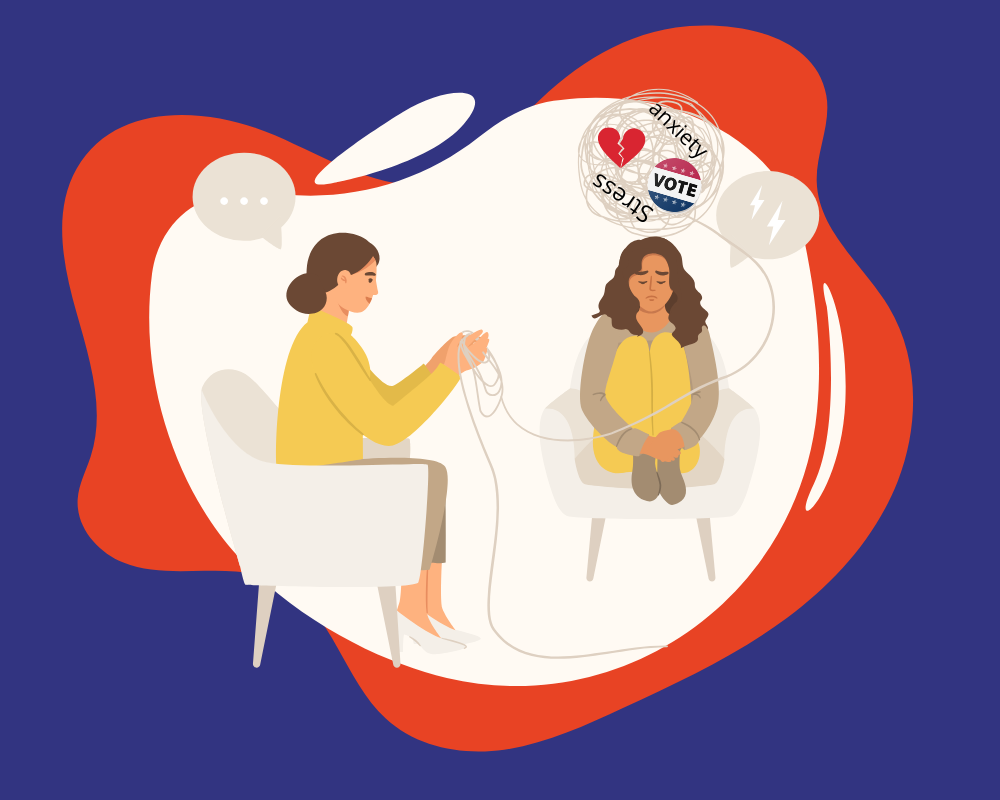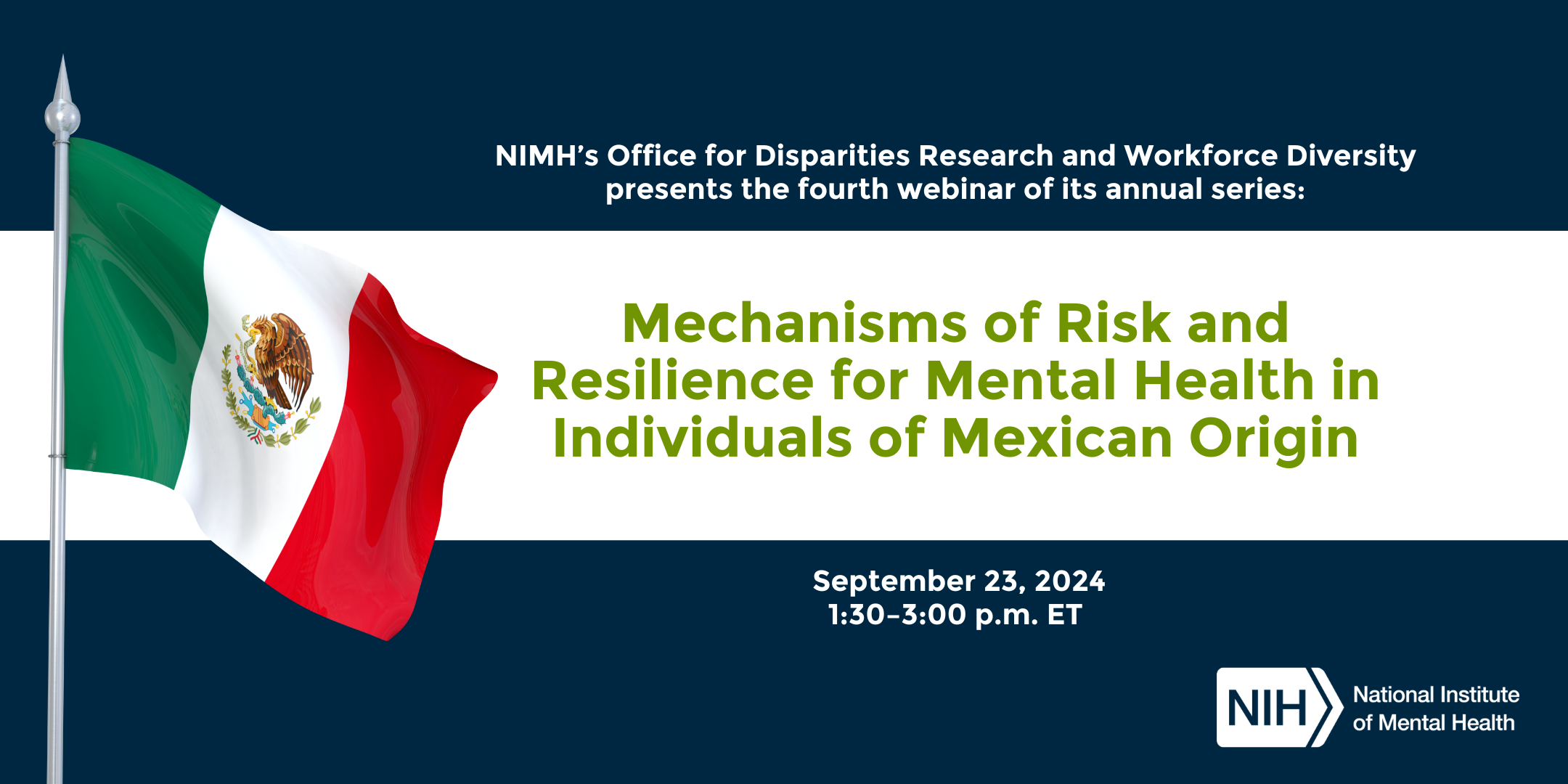
As therapists, we often find ourselves guiding our patients through a whirlwind of uncertainty about their fears. We ask them to sit with the possibility of their worst fears coming true. We do so in the hope that by facing their fears, we can help them become more comfortable with uncertainty, better manage their emotions, and improve their overall quality of life. What we don’t often think about is how stress and anxiety can significantly increase during an election year and affect everyone’s mental health.
The impact of stress on mental health in an election year
During the 2016 elections, the American Psychological Association In a survey conducted in which 52% of adults said that the election had been a “very or somewhat significant source of stress” regardless of their political affiliation. This stress was exacerbated by media overload that created political division, a sense of lack of control over the outcome and, as mentioned above, sheer uncertainty.
Increased stress and uncertainty during an election year can affect a person’s quality of life and ability to perform daily activities, which can result in:
- Anxiety / OCD – This might look like an increase in thoughts about possible outcomes that may lead to rumination and panic, excessive reassurance seeking by those who share the same concerns, and increased research into polls and data that debunk or even validate the fear, all to create a false sense of certainty or control over the outcome of the election.
- Depression – Whether it’s after a debate, a new statistical poll, or even a heated argument with family members, election stress can increase feelings of discouragement, avoidance, and isolation. For example, a person may try to avoid family and friends and distance themselves from loved ones due to divided beliefs or ongoing disagreements.
- Physical symptoms – When mental health symptoms increase, our physical health often suffers as well. A person may experience an increase in headaches, fatigue, and digestive problems. Other symptoms may include sleep disturbances, such as insomnia and sleeping too much.
- Substance use – Increased anxiety and tension can lead people to turn to substances, such as alcohol, drugs and even food, to cope. This can be a form of escapism and self-medication.
- Impact on academic or work performance – Election year stress can lead to increased absenteeism and worry, which can affect concentration and impair decision-making.
5 ways to talk about politics in a healthy way
Engaging in healthy political debates is essential to maintaining respectful and productive conversations. Here are five strategies to help you navigate these debates:
1. Listen actively
- Understand, don’t argue: Focus on understanding the other person’s perspective rather than trying to change their mind.
- Show empathy: Acknowledge the other person’s feelings and viewpoints, even if you disagree.
2. Set clear intentions
3. Practice respectful communication
- Avoid personal attacks: Focus on the problems, not the person. Avoid insults or derogatory comments.
- Use first-person statements: Express your views using “I” statements to avoid sounding accusatory (e.g., “I feel like…” instead of “You always…”).
4. Find common ground
- Shared values: Identify and emphasize shared values or goals, such as the desire for a better community or country.
- Agree to disagree: Recognize that it’s okay to have different opinions and that mutual respect is more important than agreement.
5. Manage emotions
- Keep calm: If the conversation gets heated, take a break to cool down before continuing.
How to manage mental health symptoms during an election year
The most important way to maintain mental health during an election year is to learn to create balance, maintain healthy boundaries, and slowly increase tolerance for uncertainty around the election. In addition, people can also adopt the following strategies:
Practice mindfulness daily – This can be any activity that allows us to be more present and stay in the here and now. Activities can include meditation, conscious movement, mindfulness, and journaling for gratitude and self-compassion.
Engage in personal care – Regular exercise, healthy eating and sleep hygiene can promote physical and mental well-being.
Create healthy boundaries – Establish politely boundaries Instead, focus on the actions you can take, like voting.
Stay connected – Avoidance and isolation are easy ways to avoid political discussions and unrest. However, they also lead to loneliness and disconnection from the world. It is important for people to continue to engage in their hobbies and maintain healthy emotional connections.
While it’s normal to feel stressed during an election year, it’s important to take proactive steps to manage your stress so you can maintain overall well-being.
Mental health services help in Rogers
If you or a loved one is struggling with mental health or addiction, Rogers is here to help. We offer multiple levels of treatment options. cross countryincluding inpatients, residential and telehealth For children, teens, and adults. To get started, call 800-767-4411 for a free, confidential evaluation.
This blog was written by Rogers Behavioral HealthADAA partner.



_0.png)


